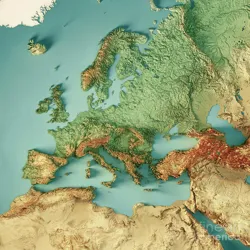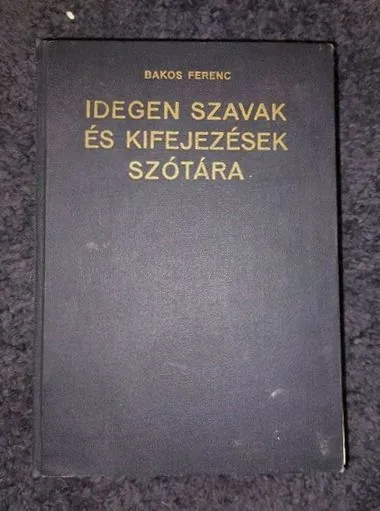Schön hier, aber waren sie schonmal auf !ich_iel@feddit.org?
Ich habe, leider ist mein Deutsch nicht gut genug, um die Witze zu verstehen :D
Eines unserer Bundesländer (Baden-Württemberg) hat eine Werbekampagne mit Aufklebern. Die Aufkleber sind mittlerweile berühmt-berüchtigt, dass man sie auf der ganzen Welt findet.

servus
Moin! 😸
Moin, min Jung. Wat moi, dat hier ok en paar Plattsnacker ünnerwegens sünd.
Fun fact: Servus was the most common greetings in Austria-Hungary, and it is still used in most of the successor states. In some countries it’s considered archaic, but in Hungary it’s still one of the most common informal greetings, sometimes pronounced with a “B” instead of “V” e.g. “serbus”.
It’s originally from latin, from the phrase servus humillimus, domine spectabilis meaning your most humble servant, my noble lord

In a similar manner in Italian we use “ciao” which means “schiavo” (slave)
Alto Adige and Venezia Giulia were part of Austria-Hungary, Veneto and Lombardy were only part of the predecessor Austrian Empire, so Italy is also one of the successor states.
Des kannten jetzt scho einige Sprochn sei. I versuchas moi auf deitsch mit da Antwort.
heast oida
J’adore ce post. Vraiment j’adore. L’anglais c’est sympa pour communiquer, mais qu’est-ce que c’est amusant de croiser une multitude de langues comme ça !!
My native language is German, I speak English, some Italian and written Latin, no French. Here’s my interpretation of your comment:
I like the post. I really like it.
SomethingEnglish is goodfor the community orfor communicating, [German word for corn, …] because (but?) it is fun to enjoy a multitude of languages [random Turkish letter].Probably the second part of the sentence isn’t about English helping to enjoy languages, nevertheless English is just good for communicating.
Words which helped me:
J’ => You => Some person => Probably I
andore => English adorable
post => English post
Vraiment => Italian veramente
L’ => An article similiar to the Italian ones => Word after it is a noun
anglias => Italian Inglese => English?
c’est => it is (est in Latin)
sympa => German Sympathie/English sympathy
pour => Italian per
communiquer => Latin communis, word ending weird, but probably a verb (German kommunizieren)
c’est = again “it is”
amusant => German amüsieren
de => Italian di (de in some forms)
croiser => German/French Connaisseur
une => Italian una, but as plural (non-existent in Italian)
multitude => English multitude (Latin multi)
de => Italian di again
langues => English language or Italian lingua
comme => Latin communis stuff again???
ça => What, Turkish?!
Bon travail !
English explanations:
- L’ is “Le” (when followed by a word beginning with a vowel), so “The” as you expected yeah
- Anglais : English (either the language or the people, here about the language)
- Sympa : Yeah, comme from Sympathy, but here meaning like “Fun”
- Communiquer : Like English Communicate. The end in “-er” mark it as a verb, like in English adding “To” before: “To communicate”
- Croiser : Similar to English: to Cross (here meaning “gathering together at the same place” or smthg)
- Une : Singular form here yes. “une multitude” is a strangely singular word, meaning to talk about a lot of things as one single group
- ça : means “it” in French. The thing under the c (cédille: ç) like in Turkish, is to make it sound like “s” instead of default prononciation sounding like “k”
Nice.
Moi je surkiffe. Je suis de retour pour participer mais j’ai toujours rien à raconter.
Content que ça te plaise, on fera sans doute ça une fois par semaine!
Tu nous fais un petit poème en verlan ?
Téki ou tékipa, c’est le dilemme frère !
L’alpha c’est ki gros ? C’est la viktim des cheu-ri kon vla dla thune, ou le chanmé qui dit nik la douleur en fumant sa grand mère aux gangs de rebelles ?
Vé-cre… Pioncer, y’a qu’ça d’vrai… T’in ça m’a tellement saoulé vas-y j’en ai plus rien à foutre des meufs et d’ma vie gros. En vrai de vrai c’est trop grave, mais j’préfère ça
Vé-cre… Pioncer; pioncer, halluciner. Wesh c’est ça le blème en fait !
Ca claque
Ah ha ! Tu l’a fait. J’y crois pas.
C’était pas du gateau, je suis pas habitué xD C’est très certainement très très caricatural et absolument faux dans l’usage (tel le vieux schnock qui tente de parler comme les “jeun’s”). Mais ça m’a bien amusé. à refaire.
Ça veut dire quoi “fumer sa grand-mère” ?
tout un tas de choses méchantes envers à qui s’adresse la phrase, dans le même genre que “lui nik*r sa m*re”
ici la phrase est traduite depuis “to take arms against a sea of troubles and by opposing end them” (du genre, faire du mal aux méchants pour qu’ils arrêtent de nous embêter dans mon interprétation)
Porto un temps aprenent català. Espero que algun dia pugui trobar prou gent que el parli aquí.
Per als interessats, hi ha !barcelona@piefed.social
Vu la facilité que j’ai à le lire, je pense que ça n’en vaut pas la peine. Dis-moi autre chose pour voir.
¡Joder, orto catalanparlante! Fa mig any vaig decidir una mica del català però necessito practicar
Ostres, no esperava ningú. Un plaer conèixer-te! Vius a Barcelona o en algun altre lloc de Catalunya?
Actualment visc en Valencià!
Molt bé, m’agrada Valencià! T’interessaria una comunitat !catala para practicar?
Que raro. Entendi todo lo que dicen ustedes pero no hablo ni una palabra de catalán. Deberia q aprenderlo.
Per escrit, és una llengua força similar i fàcil d’entendre si parles castellà!
Je ne sais pas parler catalan ni occitan, mais c’est compréhensible pour nous aussi
(mi español no esta bien, intento traducir) No hablo catalan ni occitan, pero puedemos le entendir tambien
siema kto pl
Cześć!
Jak to jest być
skrybąna fedi?
Fijne avond allemaal!
Fijne avond!
Goede middag!
Ciao a tutti, questa è una semplice frase in italiano. Se avete domande sulla lingua italiana non esitate a chiedere (domandare).
Al contrari sta-sì a l’è un-a frase an piemontèis. Ël Piemont a l’è la region ëd Turin.
Pas besoin de traducteur tellement nos langues sont proches. Mais heureusement que tu as donné un synonyme pour chiedere, j’aurais pas trouvé (enfin si, probablement, grâce au contexte)
Même le piémontais on comprend. L’orthographe est surprenante !
Oui, d’ailleurs, ce petit bout de piemontèis pourrais passer pour du français tapé trop vite.
Sì il piemontese ha tanti aspetti simili al francese, ad esempio fr “trop vite”-> pms “tròp ràpid” -> it “troppo velocemente”
Nell’altra risposta c’è qualche altro esempio
J’ai pas compris le dernier paragraphe mais les premières lignes était claires.
Le français n’a pas “vélocemente” mais on a vélocité qui nous permet de le comprendre.
On a l’adjectif “véloce” mais un peu désuet, il n’est plus vraiment utilisé sauf pour des raisons de style. On va dire “rapide” oui
On a aussi vélociraptor et vélocipède mais pour ce dernier plus personne ne s’en souvient et ne fait de de lien avec l’apocope.
Ho scritto “domandare” e “non esitate” (n’hésitez pas) sperando di aiutare i francesi! La forma per me più spontanea è semplicemente “se avete domande chiedete pure”
Riguardo il piemontese: O si pronuncia come in francese ou (tout), ma Ò con l’accento si pronuncia o (bon); U si pronuncia come in francese u (lune); Ë è qualcosa di simile al francese eu (feu) o œ (cœur). Certi aspetti sono simili al francese, come l’uso (utilizzo) di “pa” nella negazione (come in francese “pas”), o tante parole (fr. mots) per esempio “travajé” (it. lavorare) o “sapin” (it. abete) o “parèj” (it. così) o “mersì” (it. grazie)… fr “viens ici” -> pms “ven sì” -> it “vieni qui”
Voglio imparare (apprendere) il francese decorosamente (decentemente). Capire (comprendere) lo scritto è facile, ma nel parlato metà delle lettere spariscono, è difficile!
Tu sais si bien expliquer aux français je pensais que tu étais bilingue !
Ça me plaît vraiment comme langue, et cette petite leçon me donne envie de m’y mettre.
lo scritto è facile, ma nel parlato metà delle lettere spariscono, è difficile!
J’ai eu un peu la même réflexion ; ça ressemble mais sans toutes les lettres inutiles du français
Ce fil me rappelle cette vidéo : Occitan vs French vs Italian vs Catalan | Can they understand each other?
je pensais que tu étais bilingue
Purtroppo (fr malheureusement) non sono bilingue. In montagna, sul confine (frontiera) gli escursionisti (fr randonneurs) francesi mi raccontano le loro avventure - perché conversano sempre (fr toujours) con me? Ho vestiti particolari? Un viso particolare? Non so. - Allora io dico “désolé, je suis italien”. Allora loro ricominciano lentamente o in inglese.
me donne envie de m’y mettre
Se mettre au piémontais? Attenzione: recentemente qualcuno modifica l’ortografia per farla più simile all’italiano. Pessima (malvagia) idea. Su Wikipedia fr c’è l’ortografia esatta, è un buon punto di partenza. Camillo Brero (an piemontèis Milo Bré ) era il migliore studioso (specialista) contemporaneo, e ha redatto il migliore libro di grammatica
me rappelle cette vidéo
Domanda (questione) n° 2: italiano “bandiera” ok, ma in piemontese è “drapò”!
Il mio primo tempo di usare italiano nel Internet. In realtà solo voglio usare la lingua. Ma se vuoi che si facciano domande (probalimente è una domanda frequenta): È “Bella ciao” un canzone antifascista in realtà o solo un hype da “La casa de papel”? Cosa sono canzoni antifascisti che sono famosi in Italia?
Bella Ciao è una canzone antifascista, anzi per la precisione antinazista. L’origine è più antica, ma nell’epoca della guerra il testo è stato modificato con il contenuto che conosciamo oggi.
In Italia c’è sempre questa polemica fra destra e sinistra:
La sinistra dice che la destra non vuole cantare Bella Ciao perchè la destra ha la coda di paglia (“avere la coda di paglia” è un modo per dire che qualcuno sa di essere in colpa ma non vuole ammetterlo). Questo un po’ è vero.
La destra dice che la sinistra vuole impossessarsi di una canzone che in origine era di tutti (la Resistenza è stata fatta da tutti i partiti politici) e farla passare come canzone di sinistra. Anche questo un po’ è vero.
Un’altra canzone abbastanza famosa è Fischia il Vento, che invece è chiaramente di sinistra. Ma la mia cultura è limitata, non so un granché su queste robe partigiane
Grazie!
Det är inte alls mitt språk men i alla fall vill jag vara med på trådet. Hej hej!
Er det svensk?
Ja, åtminstone det menade jag. 😉
Hej hej. Visst är det ett vackert språk?
Bara av nyfikenhet: Vilka aspekter av svenskan tycker du gör det till ett vackert språk?
Om ett språk kan kallas för vackert så antar jag det är. 🤷
Tjena! Önskar alla en riktigt go helg!
Chan eil Gàidhlig mo cànan-mathair, ach bithidh mi ionnsachadh. Faic mi gu an beòthadair Luke Humphris luchdaidh-suas na bhidiothan air gun thar-ghuth airson gun luchd eadar-theangaich iad, agus tha mi airson sin a dhèanamh sa Ghàidhlig
J’ai pas compris
J’ai pas la moindre idée non plus. Je vois que ça parle de “air gun”, peut être un fan d’Airsoft… Je sais pas si c’est un piège
J’ai relu avec plus d’attention mais je ne trouve pas la mention de air gun.
(entre
bhidiothan air gun thar-ghuth)Je sais même pas de quelle langue il s’agit. ça semble germanique, et avec les accents comme ça sur les “à”, je dirais peut être genre du Gallois ? (en plus ils répètent le mot “Ghàidhlig” et ça ressemble à “Gallois”, j’ai peut être une bonne piste… Mais l’airsoft je crois que c’était un mensonge)
J’utiliserai une traduction automatique, car je ne parle pas français. C’est du gaélique écossais!
Tapadh leibh airson an fhiosrachaidh (Eadar-theangachadh fèin-ghluasadach)
Tha dusanan againn ann!
DUSANAAAIIIN
Choinnich mi ri aon ionnsaiche-Ghàidhlig eile an seo!
Choinnich mi ri dithis Èireannach an latha eile, agus chaidh aon dhiubh a thogail le Gàidhlig. An gabh sin a dhèanamh ann an Alba cuideachd?
Bhiodh e glè annamh. Bi e deannan coimhearsnachdan beag far mòr-chuid na luchd Gàidhlig orra, gu sònraichte ann na h-Eileanan Siar. Chan eil an ath-bheòthachadh inntir gus fichead bliadhnaicean air ais
Seach mar a tha Èirinn, bi pàirt mòr na h-Alba gun eachdraidh-Ghàidhlig diongalta. Anns na meadhan-aois bha e aig a’ mhòr-chuid de dh’Alba, ach bi daonnan roinnean-dùthcha gu cànanain eile orra
Inntinneach, tapadh leat!
Har ikke sett noen prate norsk i tråden, så hallo!
Det er dusinvis av oss!
Tai… apie ką būtent kalbam? :3
O, lietuvis! Man rodos, pirmą kartą matau šią kalbą, cha cha. Ar daug jūsų yra „Threadiverse“ (Piefed/Lemmy/Mbin) ?
Bent kelis lietuviškus vardus mačiau aplink lemmy, bet tikrai retai lietuviai pasitaiko :3 šiaip ir apskritai internetinėse svetainėse kai pamatai tai keista būna
Taip, manau! Šiaip ar taip, smagu tave čia matyti, visada malonu matyti kitus žmones iš Europos.
Gal pavyks visas čia europos tautybes kaip pokemonus komentaruose surinkt x3 matau jau vokiečių ir vengrų yra :3
Galėtų būti smagu! Pažiūrėsime, kaip dar seksis.
Kažkokį Justas pamatydavau, bet kažkaip nebe.
Labs
Muito lindos! Está aqui uma torre de babel do caralho.
Vá lá, mais um tuga! Já somos dois no fediverse
Oi malta
Chamaram?
Edit: quem foi o morcão que me deu um bota-abaixo? Mas isto é o r/portugal ou quē? Foda-se, já não se pode sair à rua
monolingual english silence
Yo alda sach ma wasn digga
Wat geht ab digga
Ugyanitt bojler eladó.
Helló, sok magyarul beszélő van a Threadiverse-en?
Hát egy biztosan.
hat komam, megeloztel
Jól elaludtál majd’ két napot, így azért annyira nem volt nehéz baszomalássan.


















